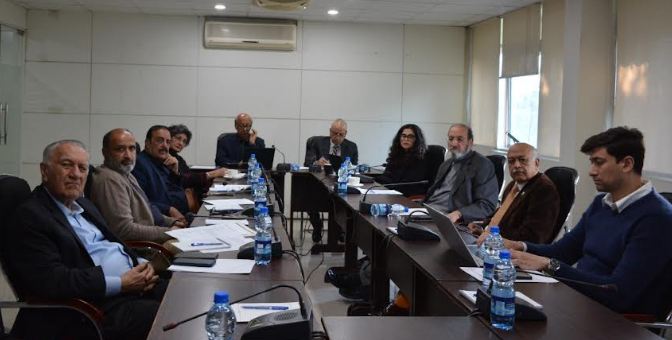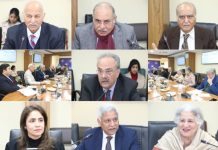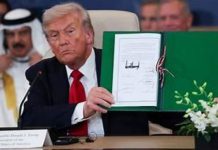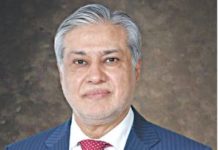ISLAMABAD, NOV 19 /DNA/ – The Center for Research and Security Studies (CRSS), Islamabad, convened a roundtable to examine the rapidly deteriorating state of Pakistan-Afghanistan relations, marked by heightened mistrust and rhetoric, stalled political dialogue, and severe disruptions to cross-border trade. Participants emphasized that security concerns must not be conflated with economic cooperation and urged both governments to decouple trade from politics, make unconditional diplomatic overtures, and protect the livelihoods of border communities harmed by prolonged closures. Speakers highlighted the escalating humanitarian costs, the billions in economic losses, the weakening of people-to-people ties, and the urgent need for rational discourse, political will, and structured mechanisms to prevent further deterioration.
Titled “Evolving Pakistan–Afghanistan Relations: Challenges and Prospects for Regional Stability”, the roundtablebrought together senior diplomats, economists, security experts, and policy practitioners from both sides.
Dr. Omar Zakhilwal, Former Afghan Ambassador to Pakistanlamented the current state of bilateral relations, noting that it hasdeteriorated even at the people-to-people level, whereas previously the mistrust existed mostly between the governments. He emphasized that the political will to resolve this crisis on both sides is weak,and without it, constructive progress remains unlikely.
Dr. Zakhilwal underscored that security considerations should not be conflated with trade, stressing that it is in the collective interest of the entire region to ensure that economic ties remain uninterrupted. The consequences of recurring border closures, he added, are clearly visible, with economies on both sides suffering significant damage.
Dr. Mozammil Shinwari, former Deputy Minister for Trade and Commerce, Afghanistan,stressed that trade is Afghanistan’s international right grounded in frameworks such as APTA, WTO rules, and UN conventions – not merely a function of neighborhood ties. He argued that Pakistan and Afghanistan must segregate economic relations from political and security concerns, warning that the current cycle of blames has led to a recurring crisis.
He noted that Afghanistan’s exploration of alternative trade routes is largely reactionary, driven by frequent disruptions. With only two transit options – Pakistan and Iran – traders may reactively resort to costlier paths if blockages persist. He highlighted that nearly USD 700 million worth of cargo remains stranded between Karachi and Torkham, constituting a massive economic loss for both sides.
He said that sending refugees back means that a whole new generation of Afghans will grow up resenting Pakistan. If they come to power tomorrow, what kind of people-to-people ties will be there? That is something we must ask.
Ayaz Wazir, Former Pakistani Ambassador to Afghanistan, suggested that the approach of securitizing trade and political engagement should be avoided, and diplomatic solutions should be opted for as a priority of engagement ahead of military solutions. He argued that communities living near the border – who bear the brunt of closures – should be meaningfully included in policymaking.
He emphasized that unconditional political dialogue, handing over the issue to the political leadership of both countries could resolve “half the problem”, while external mediators, though well-intentioned, should not be necessary for two closely linked neighbours. Heightened rhetoric, he cautioned, only worsens the situation.
Seema Ilahi Baloch, Pakistan’s Former High Commissioner to Sri Lanka, examined the humanitarian and social implications of forced Afghan deportations, drawing on insights from a similar Sri Lankan experience with terrorism. She argued that resolving such deep-rooted tensions requires political will on both sides; unilateral measures will fail. Without deradicalization initiatives and a reframed approach rooted in empathy and foresight, the region’s stability will remain elusive.
Waheed Waheed, an Afghan scholar, highlighted persistent mistrust as a central impediment to progress. Pakistan views many Afghan political or regional moves – such as overtures toward India – with suspicion, while Afghanistan perceives Pakistan’s initiatives as interference.
He stressed that Afghanistan is not playing a proxy role in India-Pakistan rivalry and that even if the limited societal sympathy for TTPexists, it does not translate into state policy or supporting them for terrorism in Pakistan.
Threatening language only inflames bilateral tensions and does no good to rescue the relationship out of the current crisis. He advocated a deradicalization conference, greater reliance on non-state influencers for conflict-resolution and to soothe the two sides seething with acrimony for each other, and clear recognition of each other’s sovereignty.
Yaqoob Sheikh, former Pakistani MNA, underscored that border closures are not new but have become increasingly disruptive to the economic relationship. Pakistan’s state-of-the-art ports are Afghanistan’s gateway to global markets; where Afghanistan is also Pakistan’s link to Central Asia.With repeated shutdowns, both gateways are losing their relevance and credibility for each other.
He questioned whether Pakistan is “punishing itself or Afghanistan” through such closures. He estimated that Pakistan could be losing up to one-fifth of international trade volume due to these blockages, suffocating the business community and damaging long-term economic prospects.
Dr. Shoaib Suddle, Chairman of the One-Man Commission for Minorities’ Rights, stated that borders and trade must never be weaponized, as this worsens grievances on both sides. He reiterated that continuous dialogue – across multiple diplomatic channels – is the only viable path to resolving contentious issues.
Lt. Gen. (Retd.) Asif Yasin reflecting on past strategic dialogues, he lamented Pakistan’s diminished leverage and external reliance on states such as Turkiye and Qatar to facilitate talks that Pakistan once led confidently.
He urged Pakistan toi) develop deep historical understanding of the relations and diplomatic expertise within its negotiating teams, ii) prioritize Pak-Afghan relations as a core foreign policy area, not a peripheral one, iii) decouple security and trade in all bilateral engagements, iv) address its internal weaknesses that provide fertile ground for militancy, and v) stop harassing Afghan residents in Pakistan, many of whom are third-generation and culturally integrated.
Qazi Humayun, former Pakistani ambassador to Afghanistan, criticized the heavy-handed approach toward Afghan refugees and its economic consequences, noting the damage inflicted on bilateral trade. He recommended a dichotomous policy: i) one approach for dealing with the Afghan people (centered on welfare), ii) another for engagement with the Afghan government (centered on the state-to-state relationship).
Dr. Rehan Mushtaq emphasized that Pakistan’s demand for Afghanistan to prevent TTP militants from operating from its soil is legitimate and internationally recognized.
Imtiaz Gul, Executive Director CRSS observed that relations between Pakistan and Afghanistan have never been this strained. He urged stakeholders to inject “sense into the toxic state of relationship” to rationalize discourse and policy.
He highlighted the colossal economic losses associated with stranded cargo and the devastating impact on labourers who depend on daily earnings from cross-border trade. He concluded with an appeal for an actionable, time-bound plan to restore dialogue and stabilize the relationship.

















